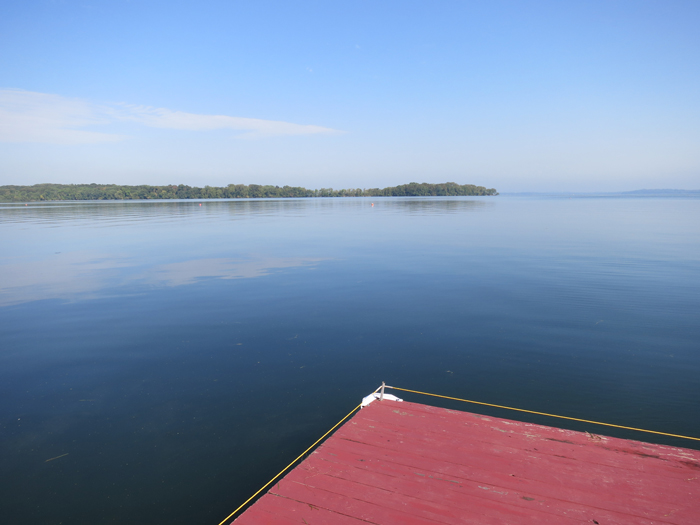You have /5 articles left.
Sign up for a free account or log in.
 Well, I survived the first week of the 2012-2013 academic year as new department chairperson, as well as the near doubling of student numbers in my new (as of 2011) online course (Geography 340 -- World Regions in Global Context). The experience of creating an online course from scratch has been a fascinating one; a form of 'learning while doing' that I highly recommend. The experience reinforced the point made in many reports and articles that it takes on average three times as much effort and money to create a new online course, and that they require a lot of ongoing effort to run if you want students to be engaged and actually learn. I'm also curious, after the last 1.5 years of working on this, how many of the 'disruptive innovation' propagandists have ever taught an online course, or run an online education program. Not many, I would wager.
Well, I survived the first week of the 2012-2013 academic year as new department chairperson, as well as the near doubling of student numbers in my new (as of 2011) online course (Geography 340 -- World Regions in Global Context). The experience of creating an online course from scratch has been a fascinating one; a form of 'learning while doing' that I highly recommend. The experience reinforced the point made in many reports and articles that it takes on average three times as much effort and money to create a new online course, and that they require a lot of ongoing effort to run if you want students to be engaged and actually learn. I'm also curious, after the last 1.5 years of working on this, how many of the 'disruptive innovation' propagandists have ever taught an online course, or run an online education program. Not many, I would wager.
The prior week included a great half-day event for department chairs, center directors, deans, etc., at UW-Madison deemed the 'Leadership Summit.' The event kicked off when our Interim Chancellor, David Ward (and former president of the American Council on Education) gave a fantastic context-oriented talk about the past, present and future of public higher education. David Ward has a unique ability to be analytical but also identify challenges and opportunities that are tangible and can be worked with. There aren't many people who can be critical about how we are still trapped in many "Victorian-" and "Edwardian-era" structures and assumptions (e.g., the timetable), while at the same time flag how we are making progress on a number of fronts and we have some real opportunities to keep the 'public' in public higher education. It's hard for me to summarize all of the points of his talk, but suffice it to say Ward was implying educators need to be both more aware of the structural changes underway in higher education (including outside the U.S.), but at the same time we have no choice but to rely on ourselves to fashion realistic solutions to the stress-points that exist. In short, the pendulum has fallen off the pin that enabled cyclical change for decades past, and we're shifting into a very different era; one with no explicit social compact about the ideal balance of public and private support for the U.S. higher education system. Ward is too experienced and smart to latch onto the 'disruptive innovation' hype circulating through U.S. universities right now, and instead advocates bottom-up forms of education innovation that we, as faculty and staff, delineate and push forward.
Besides these start-of-term reflections, I also wanted to inform readers of GlobalHigherEd that my May 2012 entry titled 'International Consortia of Universities and the Mission/Activities Question' has just been updated. Representatives of several consortia that were not flagged in the original entry contacted me so I've added them the long list of consortia in the latter half of the entry. Debates continue in internationalization circles about the efficacy of international consortia of universities and this entry is designed to provide some food for fodder to further these debates.
Finally, I wanted to let you know that one of the OECD's flagship reports -- Education at a Glance 2012: OECD indicators -- will be released this coming Tuesday and I've got an embargoed copy that is chock-a-block full of insights. I am working up a new entry about the 2012 report that is modeled, to a degree, on my September 2011 entry titled 'International student mobility highlights in the OECD’s Education at a Glance 2011.' If I can hide behind my office door for some of Monday I'll post the new entry on Tuesday (or Wednesday at the latest).
Best wishes at the start of the new academic year (at least here in North America)!

